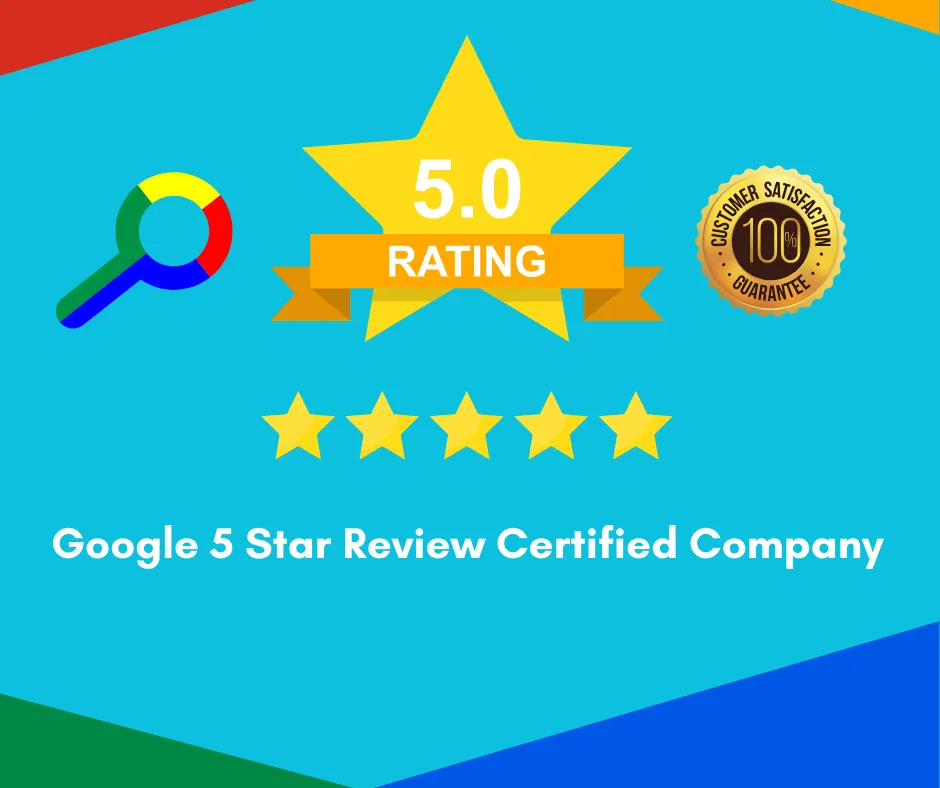ATTENTION: Homeowners In Probate
Sell Your Probate Property Fast | Hassle-Free Cash Offers | Greg Buys Cash
Watch this Short Video and Learn How to Navigate Probate
CLICK BELOW TO WATCH FIRST!
Hi there, I’m Greg, the guy behind “Greg Buys Cash.”
I know that selling a home, especially under challenging circumstances, can be a bit overwhelming. But don’t worry—you’re not alone.
I’m here to personally guide you through every step of the process. My goal is to make things as straightforward and stress-free as possible.
When you work with me, you’re getting more than just a quick, all-cash offer. You’re getting a partner who genuinely cares about helping you find the best solution for your situation. And the best part? It’s completely free—no hidden costs, no obligations.
I’ll give you a fair offer, and you’re free to decide what’s best for you, no strings attached.
If you’d prefer to talk things over with a real person, I’m just a phone call away.
Feel free to reach out to me directly at
888-863-7714. I’m here to help and would love to chat with you.
Ready to Go Over Your Options?
Take Control of Your Situation Today
Don’t let the stress of probate weigh you down any longer. Get a fast, no-obligation cash offer today and take the first step towards peace of mind.
We’re here to make the process easy, so you can focus on what matters most. Contact us now to see how we can help.
In Probate?
Avoid Lengthy Legal Processes
Relieve Financial Burdens
Settle Debts Quickly
Resolve Family Disputes
Avoid Costly Repairs
Reduce Emotional Stress
Prevent Foreclosure
Simplify the Inheritance Process
Free Yourself from Ongoing Responsibilities
Does this sound familiar?
Overwhelmed by the probate process and unsure where to start? Navigating the legal maze while dealing with the loss of a loved one can feel like too much to handle. Let us ease the burden and help you move forward with a fair, hassle-free cash offer for your property.
Struggling to keep up with the responsibilities of an inherited home? Managing repairs, upkeep, and the constant stress of unresolved family matters can be exhausting. We understand how difficult this time is, and we’re here to provide a simple solution so you can focus on what truly matters.
Feeling stuck with a property you can’t afford to maintain? The costs of property taxes, repairs, and ongoing bills can quickly add up, leaving you feeling trapped. We offer a way out with a fast, no-obligation cash offer, giving you the freedom to move on with peace of mind.
Don't worry, we can help!
Ready to Go Over Your Options?
Call Us Today!
If you are in probate, know that you have options. You do not have to do this alone. We make selling your property a breeze. Get your money now. Call us for a free, non-sales pitch.
STILL NOT SURE?
Frequently Asked Questions
We understand that going through probate can be a very overwhelming process. If you have questions, we have the answers. Don't see your question here? Call and ask us directly. We have the answers.
Can You List My Home?
While our primary focus is on providing fast, hassle-free cash offers for homes in "as-is" condition, we understand that some homeowners may prefer to list their property on the market. If you’re looking for a more traditional route, we’re happy to assist. We can list your home just like a conventional real estate agent and help you explore all your options to make the best decision for your unique situation. Whether you need a quick cash sale or want to maximize your market value, we've got you covered.

Who is your Attorney-In-Fact?
Your "Attorney-In-Fact" is the individual you designate in your power of attorney to handle your financial and/or healthcare matters. Under California law, this person is also commonly referred to as your "agent."
Who is an Agent?
Your "Agent" is the individual you designate in your power of attorney to manage your financial and/or healthcare matters. Under California law, this person is also known as your "attorney-in-fact.
Who are Heirs?
Heirs are the individuals entitled to inherit your estate if you pass away without a will. In California, if you die intestate (without a will), state law dictates how your estate will be distributed. Typically, your spouse would inherit all community property, while your separate property would be divided between your spouse and children. If you have no children, your spouse may inherit all of your separate property as well. If you have no spouse, your children would inherit your entire estate. In the absence of a spouse and children, your parents would be the heirs. The law continues to distribute the estate to other relatives, such as siblings or descendants of your grandparents, until no eligible heirs remain. Only in the absence of any eligible heirs would your estate "escheat" to the state of California, meaning it would pass to the state.
Who are Beneficiaries?
Beneficiaries are the individuals you specifically name in your will or trust to inherit your assets. These individuals may or may not be your "heirs," who are the family members that would inherit under California's default inheritance laws if you do not have a will or trust in place (see "Heirs"). Beneficiaries are chosen by you and can include family members, friends, or even organizations, depending on your wishes.
What is a Guardian?
A guardian is an individual appointed by the court to manage the financial and/or healthcare affairs of someone who is unable to do so themselves due to incapacity. In California, the court may appoint a guardian who is often a close relative or friend of the incapacitated person, though a professional guardianship company can also be selected. The guardian's role is to make decisions and manage affairs in the best interest of the incapacitated person.
What’s a Guardian ad litem?
A guardian ad litem is an individual appointed by the court to investigate and represent the best interests of a child or an incapacitated adult during legal proceedings. In California, if a probate case involves an heir or beneficiary who is under the age of 18 or is otherwise incapacitated, the court may appoint a guardian ad litem to ensure their interests are protected throughout the process. The guardian ad litem acts as an advocate, providing the court with recommendations based on their findings.
What’s a Disclaimer?
A disclaimer is a formal written document in which an individual declines all or part of an inheritance. In California, for the disclaimer to be legally effective, it must be signed and submitted within nine months of the decedent's death or the date the inheritance was established. This allows the disclaimed assets to pass on to the next eligible beneficiary without the original recipient ever taking ownership.
What’s a Declaration?
A declaration is an unsworn statement that holds the same legal weight as a sworn statement in California. For a declaration to be valid in place of a sworn statement, it must include specific language certifying that the declarant understands the declaration is made under penalty of perjury under California law. The declaration must also assert that the contents of the document are true and correct and include the date and location where the document was signed by the declarant. In California, declarations are often used as an alternative to sworn statements, which would otherwise require notarization.
What is an Inventory?
An inventory is a detailed list of all assets the deceased person left behind, with each item valued as of the date of death. In California, the inventory must be categorized by different types of assets, such as: Real Property: Land and buildings. Stocks and Bonds: Investment assets. Mortgages, Notes, and Other Debts Owed to the Decedent: Any financial obligations owed to the deceased.
Bank Accounts and Money: Cash, checking, and savings accounts. Furniture and Household Goods: Personal property within the home. Other Personal Property: Any other belongings not categorized above. If any of these assets have mortgages or other encumbrances, those must be listed as well. The inventory is a crucial part of the probate process in California, as it helps determine the estate’s value and facilitates the proper distribution of assets to heirs and beneficiaries.
What is a Community Property?
In California, community property refers to assets that you and your spouse acquire during your marriage, regardless of how the assets are titled. This means that any income, property, or other assets obtained while you are married are generally considered to be owned equally by both spouses.
Separate property, on the other hand, includes assets that you acquired before the marriage, as well as any property you inherited or were gifted, even if the inheritance or gift was received during the marriage. Understanding the distinction between community and separate property is important in California, especially in the context of divorce or probate, as it determines how assets will be divided or distributed.
What is Codicil?
A codicil is an amendment or addition to a person's will. In California, a codicil must meet all the same legal requirements as the original will. This includes being signed by the testator (the person making the will) and being witnessed by at least two people. To be admitted to probate, a codicil requires proper attestation by the witnesses, just like the original will. A codicil allows changes to be made to a will without the need to draft an entirely new document.
What Is an Attestation?
An attestation is a formal declaration by witnesses that a will was signed correctly and in accordance with legal requirements. In California, for a will to be valid, it must be signed by the testator (the person making the will) and two witnesses.
Before the will can be admitted to probate, the witnesses must either appear in court to testify about the signing of the will or provide a written document, known as an attestation, in which they swear or declare that they were present during the will's signing, signed as witnesses in the testator’s presence, and confirmed that the testator understood the will and was of sound mind.
The attestation can either be: Notarized: Officially certified by a notary public.
In the Form of a Valid Declaration: A statement under penalty of perjury that fulfills the same requirements as a notarized document. This attestation process ensures that the will is legally recognized and can be admitted to probate without the need for live testimony from the witnesses.
What Is Probate?
Probate is a legal process that comes into play after someone’s death, ensuring that their estate is properly managed and distributed. In California, the court appoints a personal representative (often called an executor or administrator) to handle various responsibilities, including selling or transferring the deceased person's belongings, paying off debts, addressing tax obligations, and distributing the remaining assets according to the deceased's will.
If there is no will, the assets are distributed according to California's intestate succession laws. While probate might seem straightforward, it requires careful adherence to legal procedures. The appointed representative must follow the law meticulously, including sending out appropriate notices to interested parties, allowing them to protect their rights if necessary.
Unlike some other states, California courts typically do not closely supervise the administrator during the probate process. However, failing to comply with the legal requirements can lead to complications, delays, and additional costs.
What is a Letters Testamentary?
What Is a Letters Testamentary? Letters Testamentary is a legal document issued by the court when someone is appointed as the personal representative (executor) of an estate. In California, this one-page document serves as official proof that the court has authorized the person to administer the deceased's estate.
The Letters Testamentary grants the personal representative the legal power to manage and distribute the estate's assets, pay debts, and handle other responsibilities related to the probate process. It is often required when dealing with banks, creditors, and other entities that need confirmation of the representative's authority.
What is a Community Property Agreement?
A Community Property Agreement is a legal document in which you and your spouse agree on three key principles regarding your assets in California:
Current Assets as Community Property: You both agree that all assets you currently own are considered community property.
Future Assets as Community Property: You agree that any assets acquired in the future will also be considered community property.
Transfer of Assets Upon Death: Upon the death of the first spouse, all community property will automatically transfer to the surviving spouse. This agreement is often used to simplify the transfer of assets to the surviving spouse, ensuring a smoother and quicker transition without the need for extensive probate proceedings. It provides clarity and peace of mind, making asset management more straightforward for the surviving spouse.
What Are Nonintervention Powers?
Nonintervention powers in California allow a personal representative (executor) to manage an estate without needing court approval for routine tasks, such as selling assets, paying bills, or distributing assets to beneficiaries. These powers streamline the probate process by reducing the need for court involvement, making estate administration more efficient and less burdensome.
Without nonintervention powers, the personal representative would be required to file petitions and seek court approval for even basic actions, which can delay the process and increase costs. Nonintervention powers are a key feature of California's probate system, designed to simplify and expedite the administration of estates.
What are General Bequests?
A general bequest is a gift specified in a will that is to be paid out of the general assets of the estate, rather than from a specific source. For example, if a will leaves $5,000 to a charity or a family member, this is considered a general bequest.
The estate’s executor will ensure that the bequest is fulfilled using the available assets of the estate, regardless of where those assets come from. General bequests are common in wills and are typically monetary gifts or percentages of the estate’s total value.
What’s a Health Care Directive? (Living Will)
A Health Care Directive, also known as a Living Will, is a legal document that outlines your preferences and instructions for medical treatment in situations where you are unable to communicate your wishes, such as if you have a terminal illness or are in a permanent unconscious state. This directive informs doctors and your family about your desires regarding the administration or withdrawal of life-sustaining treatments.
In California, a Health Care Directive can also include specific instructions for how you wish to be treated if you are ever diagnosed with a mental health condition, such as dementia or Alzheimer’s disease. These documents can vary in complexity, allowing you to make your medical wishes known in advance and ensuring that your healthcare decisions are respected, even if you are unable to advocate for yourself.
What’s a Bond?
In California probate, a bond is a type of insurance policy that protects the estate and its beneficiaries. The bond ensures that if the personal representative (executor) commits any wrongful acts or mismanages the estate's assets, the bonding company will compensate the harmed parties up to the bond amount. This provides an additional layer of security, ensuring that the personal representative carries out their duties in accordance with California law and the interests of the estate's heirs and creditors.
TESTIMONIALS
What others are saying

"They truly went above and beyond for us"
I cannot express enough how impressed we were with their dedication to getting us into our dream home in El Cajon. They truly went above and beyond for us. Can you believe they drove all the way from Orange County multiple times just to ensure everything was perfect for us? We felt like they were right there with us every step of the way.
- M. Monroe


"Best experience we've ever had"
They are so responsive to every call and every text and every email. I highly recommend Greg and Esther. They are both professional and experts at their job. But, they're so down to earth and so friendly they just made us feel so relaxed and just made the whole process the best experience we've ever had. I will recommend them to all of my friends and family.
- T. Karratti


"I felt like he really cared about me and my situation"
Greg was incredibly responsive from the very first contact. He was available to answer any questions I had about the process, day, night or weekend. Not only was he efficient and professional, but he was also very caring and personable. I felt like he really cared about me and my situation and that I wasn’t just a number or a case. From start to finish I felt confident with Greg and his team.
- E. Munoz

How It Works
We keep the process streamlined and stress free for you.
Initial Meeting
Step 1
Leave the hassle to us: no need to travel, make calls, or arrange appraisals. We’ll come to you, learn about your situation, and find the best options for you. Forget about repairs, brokers, and splitting profits—we buy homes as-is. When you're ready to sell your house quickly, our real estate expert will meet with you in person to close the deal, wherever you are.
Property Assessment
Step 2
Selling a house for a good price can be challenging, especially if it’s in disrepair. Even with buyers around, most people are looking for a move-in ready home. But with Greg Buys Cash, you don’t have to worry about the condition of your property. Have a tax lien? No problem! We buy houses, regardless of their condition!
Cash Offer
Step 3
When the cost of repairs is beyond your budget, and you're ready to move on, you can rely on us for a straightforward cash offer!
We do our best to offer you the highest cash offer in the industry. Don't fall for the "other guy's" low ball offer until you have spoken with us. We are here to make sure you win.
Contract Completion
Step 4
People often ask, "How can I sell my house fast?" It’s simple—just call us. We’ll manage everything, from the paperwork to the clean-up and repairs. We offer a stress-free transaction, ensuring a smooth process from start to finish.
How do we come up with our fair offer to you?
We Believe in Transparency—Here's What Most Companies Won't Tell You.
The Inside Scoop: How We Calculate Your Offer with Real Numbers
At Greg Buys Cash, we believe in transparency and fairness. We know that selling your home can be a stressful experience, especially when you’re dealing with the probate process.
That’s why we take pride in making sure our offers are clear, fair, and straightforward. Here’s exactly how we come up with the offer we present to you—no smoke, no mirrors, just honest math.
Step 1: Determine the After Repair Value (ARV)
The After Repair Value (ARV) is what your home would be worth after we’ve made all the necessary repairs and upgrades. We base this on comparable homes in your area that have sold recently, making sure it reflects current market conditions.
Example: Let’s say a similar home in your neighborhood, fully updated and move-in ready, recently sold for $900,000. That’s our ARV.
Step 2: Calculate the Cost of Repairs (COR)
Next, we calculate how much it will cost to bring your home up to that same standard.
This includes everything from minor fixes to major renovations—whatever is needed to make your home shine on the market.
Example: After assessing your home, we estimate the Cost of Repairs (COR) to be $100,000. This might include:
Roof replacement: $25,000
Kitchen remodel: $35,000
Bathroom updates: $20,000
General repairs and updates: $20,000
Step 3: Factor in Our Selling Costs
Even though we handle the repairs and sale, there are still costs associated with selling the home once it’s ready. This includes agent commissions, closing costs, and other fees that are part of the selling process.
Example: We estimate these selling costs to be around 10% of the ARV:
Selling Costs: $900,000 x 10% = $90,000
Step 4: Include Our Minimum Profit
To keep our business running and continue offering these services, we aim for a fair profit margin. Our goal is to work with a modest profit, ensuring we can make competitive offers without sacrificing quality.
Example: For this property, we aim for a Minimum Profit of $50,000.
Step 5: Your Offer Calculation
Now, let’s bring it all together to determine the offer we can make to you:
[Your Offer] = [ARV] – [Cost of Repairs (COR)] – [Our Selling Costs] – [Our Minimum Profit]
Your Offer = $900,000 – $100,000 – $90,000 – $50,000 = $480,000
Why This Offer Makes Sense
This offer reflects the reality of what it will take to bring your home up to market standards and sell it.
By breaking down the costs and profits, you can see exactly how we arrive at our offer, ensuring there’s no hidden agenda—just straightforward math designed to be fair to you.
What If Repairs Cost Less?
If we find that repairs will cost less than anticipated, we’ll adjust the offer accordingly.
For instance, if repairs only cost $70,000, your offer would increase:
New Offer = $900,000 – $70,000 – $90,000 – $50,000 = $510,000
Your Choices:
Compare this to listing your home with an agent. If you listed it as-is and it sold for $620,000, after paying the standard agent fees, other closing cost, title and escrow ect... you’d walk away with $572,800.
Plus, you might wait months for a buyer and still face repair costs or concessions during negotiations.
With us, you get a guaranteed sale within 10-20 days, with no additional costs, stress, or delays

Why Work with Us?
At Greg Buys Cash, our offers are based on real numbers and a commitment to fairness. We’re not here to take advantage of your situation—we’re here to provide a solution that works for everyone.
Our goal is to make sure you feel confident and satisfied with the sale of your home, knowing that you got the best possible deal.
Family Owned and Operated
As a family-owned and operated business, you are far more than just a number to us. We understand the emotional weight that comes with navigating the probate process, and we're here to support you with compassion and understanding.
Unlike large corporations, our focus is on helping you find the best path forward during this delicate time.
With hundreds of positive reviews from both past and current clients, we’ve earned a reputation for being a trusted resource for those facing probate.
We truly get the challenges you’re dealing with, and our commitment is to guide you through this process with care and respect. Our priority is to be here for you, providing the options and support you need to make the best decisions for your family.

Powered By Firmcarrot | Greg Buys Cash™ | Terms & Conditions
